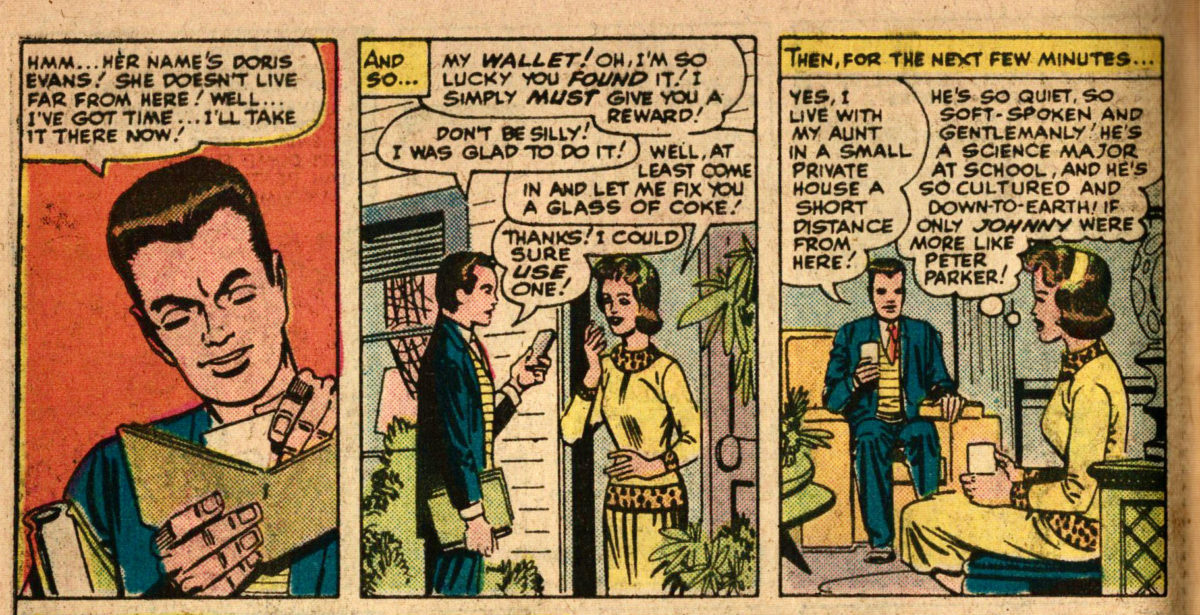Featuring: Human Torch
Release: June 11, 1963
Cover: 1963
25 cents
Written by: Stan Lee
Drawn by: Jack Kirby
Inking: Steve Ditko
18 pages

Jack Kirby drew the cover for Spider-Man’s very first appearance. Besides that, this will be his first chance to draw the web-slinger. Fortunately, Spider-Man’s own Steve Ditko is on hand providing finishes to help keep the character on-model.
Nonetheless, they forgot his chest logo on the cover. I find it very weird to look at. And Kirby keeps drawing Spider-Man with his legs really awkwardly spread.

This is our first “annual”. Mostly we’re reading monthly or bi-monthly comics. But ongoing series occasionally fit in one special issue per year they call an “annual”. This is Strange Tales annual 2, so it’s obviously not the first, but it’s the first since Strange Tales became a regular superhero feature. The first Fantastic Four annual will also be debuting shortly.
This issue is more than double the usual price at 25 cents, coming in at 72 pages. Normally, an issue of Strange Tales is about 23 story pages, featuring 3 stories, a Human Torch tale and two others. Soon, Dr. Strange will start regularly sharing the book. This annual features a whopping 11 stories. However, all except this Human Torch story are reprints of older stories. The previous annual was entirely reprints.
This is the first full story dedicated to Spider-Man and Human Torch meeting. They’ve met twice before, but only briefly, in Amazing Spider-Man #1 and #3. I’m excited as I consider this one of Marvel’s great superhero friendships.
Continue reading “Strange Tales Annual 2”











































